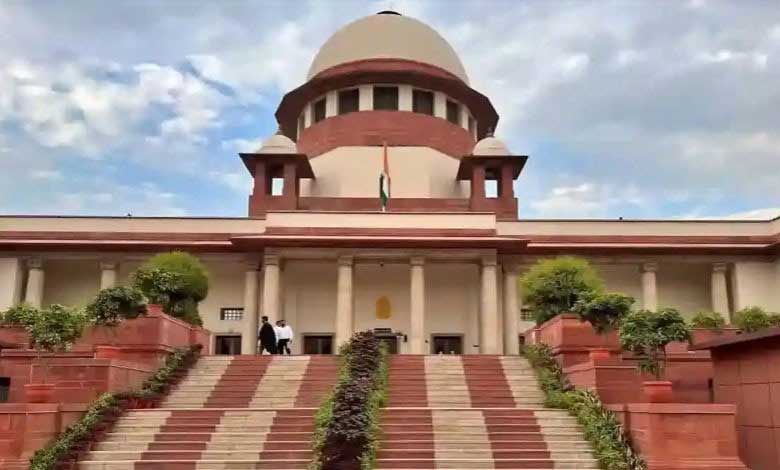Supreme Court to Hear Congress Plea on January 15 Challenging Amendments to Election Rules
The Supreme Court will hear Congress leader Jairam Ramesh's plea on January 15, challenging amendments to the Conduct of Election Rules, 1961, which limit public access to election materials like CCTV footage.

New Delhi: The Supreme Court of India is scheduled to hear a plea filed by senior Congress leader Jairam Ramesh, challenging the recent amendments to the Conduct of Election Rules, 1961.
The amendments, which restrict public access to key election materials such as CCTV footage, have raised concerns about the transparency and accountability of the electoral process in India.
The court is set to hear the matter on January 15, with Chief Justice Sanjiv Khanna and Justice Sanjay Kumar presiding over the case.
Table of Contents
Background of the Congress Plea
On December 24, Congress leader Jairam Ramesh filed the petition before the Supreme Court, challenging the Election Commission of India’s (ECI) amendments. These amendments restrict access to certain election materials, including CCTV footage, unless explicitly listed by the ECI.
In his plea, Ramesh argued that the Election Commission, a constitutional body responsible for ensuring free and fair elections, should not have the authority to unilaterally amend critical rules such as the Conduct of Election Rules, 1961, without engaging in public consultation.
Ramesh’s petition further highlighted the concern that such changes undermine the transparency of the electoral process, which is a cornerstone of Indian democracy.
He took to social media, asserting that the ECI’s amendments would prevent the public from accessing vital election-related materials that ensure transparency and accountability in elections.
“The integrity of the electoral process is fast eroding,” Ramesh said in his post, expressing hope that the Supreme Court would take action to restore electoral integrity.
Key Points of the Challenged Amendment
The amendments introduced by the Election Commission on December 21 followed recommendations from the ECI itself and were seen as a response to a directive from the Punjab and Haryana High Court, which had previously ordered that CCTV footage of an election booth be made available to the public.
Under the new rules, public access to such materials is heavily restricted, raising concerns that such a change could hinder the transparency of the election process.
Ramesh’s plea points out that the changes to the Conduct of Election Rules would disproportionately limit public access to essential election data. This restriction, according to Ramesh, contradicts the ECI‘s role in ensuring the elections are both free and fair.
Political Reactions to the Amendment
The amendment has sparked strong political reactions across India. Tamil Nadu Chief Minister M.K. Stalin strongly criticized the changes, accusing the BJP-led Union Government of undermining democracy. Stalin called the amendment an “undemocratic assault” on the principle of free and fair elections.
In his post on social media, Stalin voiced concerns that the amendment, specifically Section 93(2)(a) of the Conduct of Election Rules, would significantly reduce transparency in the election process, which is one of the fundamental features of the Indian Constitution.
Stalin urged all political parties, including those aligned with the BJP-led Union Government, to unite against this move. He claimed that this amendment is a direct threat to the integrity of democracy in India and undermines transparency, one of the key pillars of the Indian electoral system.
Importance of Transparency in Elections
Election transparency is vital for maintaining public trust in the democratic process. Access to election-related materials, such as CCTV footage, helps ensure that elections are conducted fairly and that any potential violations can be monitored and addressed.
The ability to scrutinize election data is essential for upholding the integrity of the process and ensuring that the public can hold the authorities accountable for any irregularities.
The concerns raised by Ramesh, Stalin, and other critics of the amendment underscore the importance of preserving transparency in elections. With India’s elections being the largest democratic exercise in the world, it is crucial that every effort is made to ensure the process remains open and accountable to the public.
Also Read | Same-Sex Marriage: Supreme Court’s Big Decision, No Changes in Law
Legal and Constitutional Implications
The ongoing case in the Supreme Court will address the legal and constitutional implications of the recent amendments to the Conduct of Election Rules, 1961.
The petition challenges the Election Commission’s authority to make unilateral changes to such a vital legal framework without public consultation, and it questions whether the amendments violate the principles of democracy, transparency, and accountability outlined in the Indian Constitution.
If the Supreme Court rules in favor of the Congress plea, it could lead to the amendment being rolled back or revised, preserving the public’s right to access essential election materials.
Conversely, a ruling in favor of the Election Commission could reinforce its authority to amend the Conduct of Election Rules in the future, potentially setting a precedent for similar changes across various electoral laws in the country.

